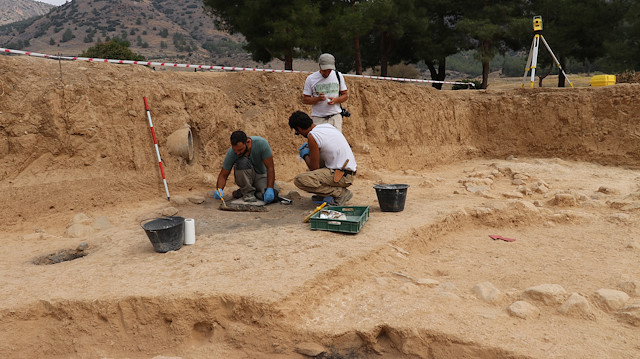
The discovery of a necropolis found in Turkey’s UNESCO World Heritage site Hierapolis-Pamukkale changed the history of the region, according to the head of excavation in the ancient city.
The latest excavations in Hierapolis, or Pamukkale in Turkish (Cotton Castle), in the southwestern province of Denizli unearthed a new necropolis, which takes the region's known history back around 500 years.
Dubbed as “Holy City” in the archeological literature due to hosting a number of temples and religious structures, Hierapolis-Pamukkale ancient city was believed to be founded by Eumenes II, one of Pergamon kings, at the beginning of the 2nd century BC -- until new discovery.

Grazia Semeraro, a classical archeology professor at Italy’s Salento University, told Anadolu Agency that the finding was “a new a chapter in the history of Hierapolis”.
“This new excavation demonstrates that the settlement here started some centuries before the Greek foundation in the Hellenistic period,” Semeraro said.
“This new excavation is a very important one because it will permit us to better know the history of the region -- that is, the people living here before the Greeks and the Romans,” she added.

“In here, we found a necropolis with a very particular ritual of cremation. We are now in the area of the ancient necropolis of the iron-age,” she added.
“This is a new excavation area and it is also a new chapter in the history of Hierapolis,” she added. “We are now excavating the region settlement that is that part of the town inhabited by the ancient people living here before the Greeks and before the Romans.”
“This year we continue the excavation carried out by the museum of Hierapolis two years ago,” she said, adding the research was ongoing by expanding the excavation.
“The results are very important because they permit us to better understand the history of the region and people living before the Greeks and Romans,” she added.














